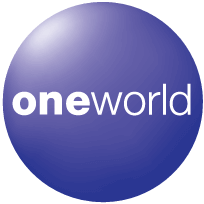Actions towards Nutrition
Basic Concept
JAL is implementing a variety of initiatives based on the basic concept of "delicious, healthy, and sustainable meals" to ensure that our customers enjoy their travel in a healthy way.
Inflight and lounge meals are planned and reviewed by relevant internal departments in cooperation with outside chefs, JAL Royal Catering chefs, nutritionists, and other experts, as well as by collecting and analyzing customer feedback. We also offer special inflight meals for passengers with allergies or health concerns.
Reference Guidelines
The policy of the Ministry of Health, Labour and Welfare*1, overseas trends*2, and the Nutrition Declaration of the Tokyo Nutrition Summit 2021 held in December 2021*3 were used as references. We participate in the Ministry of Health, Labour and Welfare's "Healthy and Sustainable Food Environment Strategy Initiative*4", and we are taking into account the negative impact of food on health and access to better nutrition in our JAL initiatives.
*1 A report published by the Ministry of Health, Labour and Welfare (June 30, 2021), "The committee meeting on the promotion of a healthy and sustainable food environment,".This page will open in a new window.The report identifies "excessive salt intake" and "unbalanced nutrition among young women" as important nutritional issues.
*2 The EU's "Farm to Fork" strategyThis page will open in a new window. aims to promote a shift to a plant-based diet rich in fruits and vegetables, as it is important to turn the rise in obesity rates into a negative trend.
*3 The Tokyo Nutrition Declaration of the Tokyo Nutrition for Growth Summit 2021 (Tokyo Nutrition for Growth Summit 2021), which was held in December 2021, emphasizes the importance of promoting healthy eating and building sustainable food systems.
*4 An initiative established by the Ministry of Health, Labour and Welfare (MHLW) to promote a food environment where everyone can be naturally healthy through collaboration among industry, academia and government.
For over-the-counter products, the hygiene management department checks in advance that nutrition and health promotion information on labels and pop-ups is appropriate and in compliance with laws and regulations, and provides education on labeling to airport and lounge staff.
Specific Initiatives
We are committed to the following four initiatives to improve our health impact, access to better nutrition, and sustainable eating. We will disclose necessary information to our customers, further expand our initiatives, and disclose our progress as appropriate.
Less salt and low calorie
It is said that Japanese people consume excessive amount of salt, and the Ministry of Health, Labour and Welfare (MHLW) has stated that this is an issue that needs to be addressed as a priority.
JAL has been using foods and ingredients with reduced-sodium specifications on international flights departing from Japan and at lounges in Japan since fiscal year 2022*5.
In addition, with regard to excessive calories*6, which is one of the causes of lifestyle-related diseases, JAL will study and prepare to expand the menu offerings*7 and introduce new menu items by fiscal 2030 that use plant-derived meat substitutes, which are considered to be low in calories.

Morning meal with reduced-sodium miso soup

Reduced-sodium Rice Snack
*5 We switch meals that are considered to be particularly high in salt (miso soup, soup, pickles, refreshments, tomato juice, etc.) to low-sodium products.
*6 Although nutrition labeling is not required by law for inflight meals, JAL has established labeling standards and displays calories and reduced-sodium labels on menu cards for inflight meals departing from Japan.
*7 We offer a variety of menu items, for example, plant-based sushi in our lounges and alternative hamburgers for First class breakfast on domestic flights.
Consideration for nutritional deficiencies
Recently, it has been pointed out that young women are not consuming enough vegetables, etc. JAL offers a healthy menu centered on vegetables rich in vitamins, potassium, calcium, etc. in its first and business class on flights from Japan to Europe and the United States*8。
This initiative is based on the theme of "healthy menus that are delicious and can be eaten up." By using ingredients with high nutritional value and passengers finishing the meal, we aim to provide them with the nutrition they need and also reduce food waste.

Economy class RED U-35 × Well-being

SDGs - A dish from "The Future 50 Foods"

Lounge vegetable chip salad using the Future 50 Foods
We offer inflight/lounge menus that incorporate ingredients from the "50 Ingredients of the Future" list.
*8 Nutritious ingredients (vegetables, seaweed, etc.) are selected from the "Future 50 foods reportThis page will open in a new window.", which Unilever advocates together with WWF in the UK, and a variety of recipes are developed and provided.
"Sustainable Food" and its Communication
In support of the aims of the United Nations Food Systems Summit held in September 2021 to achieve the SDGs, JAL is taking various "food sustainability" initiatives, such as proactively adopting sustainable certified food ingredients (use of certified products), reducing food waste, adopting "Foods for the Future 50 and alternative meats.
We believe it is important to let our customers know about our sustainable food initiatives, and we are already using external media such as menu cards and our website. We will continue to actively communicate our efforts to achieve sustainable food in the future.

